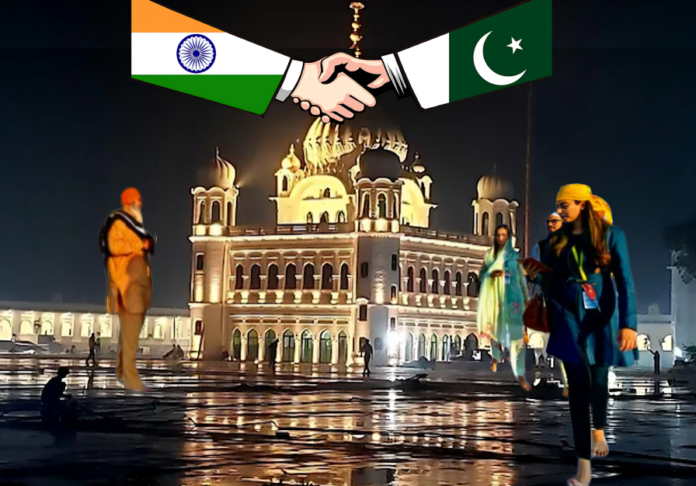The Foreign Office of Pakistan announced the renewal of the Kartarpur Corridor agreement with India, extending its validity for an additional five years. This agreement, originally signed on October 24, 2019, has facilitated thousands of Sikh pilgrims by providing visa-free access to the sacred Gurdwara Darbar Sahib in Kartarpur, Narowal, Pakistan. The extension of this initiative underscores Pakistan’s commitment to fostering religious harmony and strengthening ties with India.
Key Points of the Kartarpur Corridor Agreement Renewal
Duration and Renewal of the Agreement
- The agreement was first signed on October 24, 2019, for a five-year period, set to expire on October 24, 2024.
- It has now been renewed for an additional five years, ensuring uninterrupted access to Sikh pilgrims.
- The renewal symbolizes both countries’ willingness to continue fostering interfaith dialogue and promoting peaceful coexistence.
Visa-Free Access for Sikh Pilgrims
- One of the central features of the Kartarpur Corridor agreement is providing visa-free entry to Sikh pilgrims from India.
- Pilgrims can visit Gurdwara Darbar Sahib Kartarpur, the revered site where Baba Guru Nanak, the founder of Sikhism, spent his final days.
- The visa-free nature of the corridor reduces travel complications, offering a seamless pilgrimage experience.
Continued Facilitation of Sikh Pilgrims
- Since its inauguration, the Kartarpur Corridor has facilitated the travel of thousands of Sikh worshippers to one of their most cherished religious sites.
- This visa-free crossing allows Indian Sikhs to visit the Gurdwara, located 4 kilometers (2.5 miles) inside Pakistan’s border.
- The renewal continues to fulfill the long-cherished aspirations of the Sikh community, providing unhindered access to their sacred heritage.
Pakistan’s Commitment to Interfaith Harmony
- The extension of the Kartarpur Corridor agreement reaffirms Pakistan’s enduring commitment to religious freedom and the protection of minority rights.
- Pakistan has received international praise for this initiative, with the United Nations Secretary-General Antonio Guterres calling it a “Corridor of Hope” for its role in promoting peace and understanding between religious communities.
- The initiative showcases Pakistan’s recognition of religious minorities, fostering interfaith harmony in a region with a rich and diverse religious history.
Impact of the Corridor on Pakistan-India Relations
- The Kartarpur Corridor serves as a symbolic bridge between Pakistan and India, linking Pakistani Punjab with Indian Punjab, the birthplace of Sikhism.
- Despite the tense political relations between the two countries, this corridor remains a crucial symbol of cooperation, offering a rare channel for people-to-people connectivity.
- The corridor, first opened in 2019 to mark Guru Nanak’s 550th birth anniversary, was briefly closed during the COVID-19 pandemic but has since resumed operations.
Historical and Cultural Significance of the Corridor
- The Gurdwara Darbar Sahib Kartarpur is one of the holiest sites in Sikhism, where Guru Nanak spent the last 18 years of his life and passed away in 1539.
- For Sikhs, the Kartarpur Corridor represents not just a physical passage but also a spiritual connection to their religious roots.
- Although Sikhs are a small minority in Muslim-majority Pakistan, many of their most important religious sites remain in the country, further underlining the significance of the corridor.
International Recognition of the Initiative
- The Kartarpur Corridor has earned widespread international recognition and is seen as a model for cross-border religious tourism.
- It has become a beacon of hope for interfaith dialogue and has been acknowledged globally for fostering peaceful coexistence between communities of different faiths.
Strengthening Ties Through Religious Diplomacy
The renewal of the Kartarpur Corridor agreement between Pakistan and India is a significant step toward continuing the facilitation of religious pilgrimages and promoting peaceful cooperation.
By offering visa-free access to Indian Sikh pilgrims, the initiative not only strengthens bilateral relations but also reaffirms the two nations’ commitment to religious freedom. The agreement serves as a symbol of hope, unity, and respect for religious minorities, resonating with the global community as an example of peaceful coexistence.


